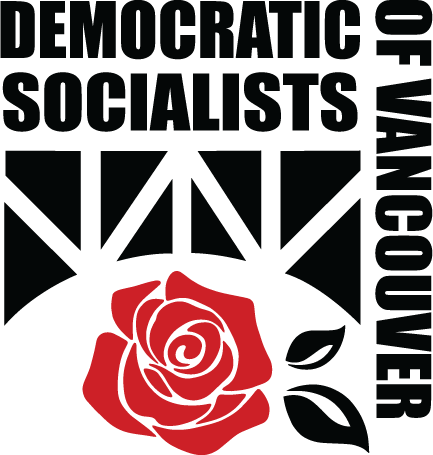Please be aware that the DSOV reading group abides by the organization’s statement of principles.
https://www.democraticsocialistsyvr.ca/statement-of-principles
Please Review the DSA’s Guidelines for Respectful Discussions
https://www.dsausa.org/organize/respectful_discussion/
This is the meeting link
https://meet.jit.si/DSoV
Readings
1 . Intro/General Questions:
How do you identify as a feminist?
Are you a marxist feminist or a socialist feminist or a materialist feminist or some other kind of feminist?
Are all marxists feminists and all feminists marxists?
What does feminism mean to you?
How has being a woman informed your socialism and your experience of oppression under capitalism?
How are women represented and our liberation imagined in the DSoV and on the left generally?
2. What Is Socialist Feminism? by Barbara Ehrenreich
In her article Ehrenreich briefly discusses the concept of class atomization. Silence and isolation are ongoing tools of capitalist oppression, along with the threat of violence, in particular for women. What does she mean by this and how is it important, in particular, for women? What are the forces that have atomized working class life and the working (paid and unpaid) life of women?
3. Spain’s Feminist Strike by Beatriz Garcia, Nuria Albao & Marisa Perez
Hacia la huelga feminista! Towards a feminist strike! On March 8 2018 five (5) million people went out on a strike for women’s rights and freedom. It was a stoppage of waged work, caring and shopping by women. 8M took years of organizing and meetings were held on the 8th of every month building the framework for the strike. No one group dominated. This call to strike worked very well as a form of struggle against capitalism and the patriarchy. How might the DSoV and other socialist and feminist groups organize around such a call to strike here in BC and Canada?
3. What Has Socialism Ever Done For Women?
This article discusses the impact of state socialism on the lives of women in Eastern Europe post WW2 and also provides a very interesting and focused analysis of women’s experiences in Austria (capitalist) and Hungary (socialist). They argue that state socialism greatly benefited women – with socialist state intervention their lives were markedly changed for the better. They argue that there must be a feminist state along with a socialist state and without it “women will continue to perform the unremunerated care work for capitalist societies, which will only increase as the baby boomer generation enters old age”. Do you agree with this and why? Also, how can a socialist movement or socialist state undo entrenched gender roles?
4. Hidden Abodes in Plain Sight: the Social Reproduction of Households and Labor in the COVID-19 Pandemic by Sara Stevano, Alessandra Mezzadri, Lorena Lombardozzi & Hannah Bargawi
What’s next? Stevano et al argue that we need to rethink our response as international feminists and socialists to this pandemic crisis and its impact on women and socio- reproductive work. They state: “Hence, in order to dismantle the political, cultural, and economic constraints that condemn women to positions of subalternity in both the private and public sphere, we need to rethink and decommodify the concept of work and what it means for the survival of the socio-economy”. What do you think of this idea and other ideas expressed in this article? What might be missing from this analysis and approach?

